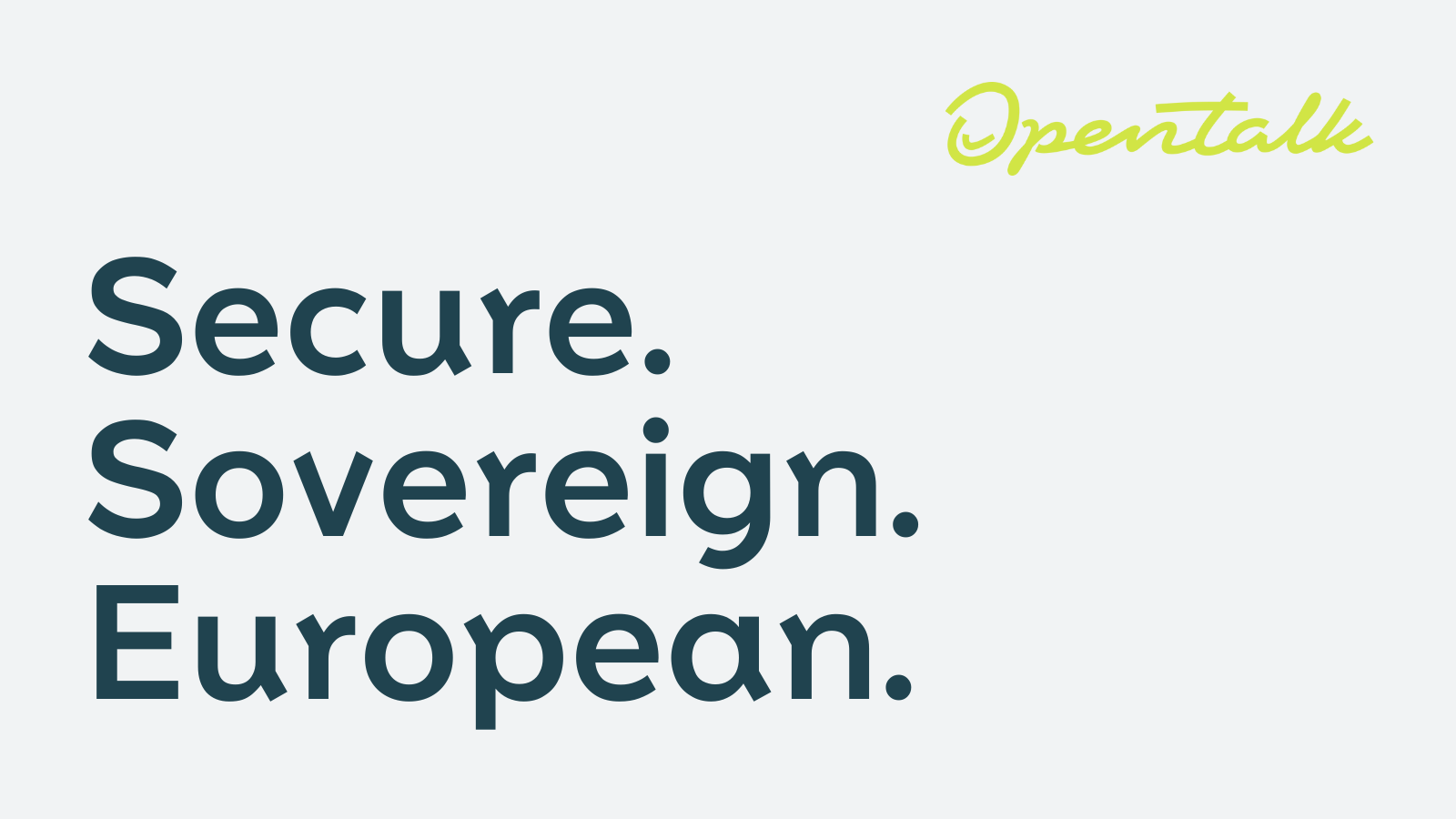European video conferences: secure and sovereign

The demand for secure, data protection-compliant, and trustworthy communication solutions is constantly growing—especially in government agencies, companies, and public institutions. European providers of video conferencing solutions are increasingly becoming the focus of attention. The reasons for this are increased regulatory requirements, growing awareness of digital sovereignty, and the desire for independence from non-European IT structures.
Data location and data protection: legal certainty through European solutions
Many internationally used video conferencing services are based on infrastructures that are operated outside the European Union. As a result, the data stored and processed is not subject to the European General Data Protection Regulation (GDPR). This poses a significant risk for public authorities and companies with high data protection requirements – both legally and in terms of reputation.
Video conferencing solutions with servers located in Europe provide a remedy here. They are subject exclusively to the European legal framework and enable GDPR-compliant communication without the need for additional protective measures.
Digital sovereignty as a strategic goal
Digital sovereignty encompasses more than just data protection. It describes the ability of organizations to have control over their digital infrastructure, their data, and their communication channels. European video conferencing solutions play a key role in ensuring this control, especially when they are based on open standards and open source code. This not only creates transparency, but also enables long-term independence from proprietary software and external providers.
Open source as the foundation of trustworthy communication
Openness and traceability are key requirements for modern communication solutions. Open source software offers the advantage that the source code is publicly available and verifiable. Security mechanisms and data flows can thus be transparently traced and adapted to specific requirements. At the same time, open interfaces and standards strengthen interoperability with existing systems. For organizations with high security standards, this is an important factor when selecting IT solutions.
OpenTalk: a European alternative for secure video conferencing
OpenTalk is a modern, powerful, and fully GDPR-compliant video conferencing solution designed for use in data-sensitive areas. OpenTalk is based on an open software architecture and can be operated as both a SaaS and on-premises solution. The source code is freely accessible and the service is operated exclusively on servers within Europe – a clear advantage for organizations that depend on digital sovereignty and data protection.
A strong network for digital sovereignty
OpenTalk is part of the Heinlein Group, which has stood for secure, scalable, and user-friendly IT solutions from Europe for decades. With the email service mailbox.org and the file management solution OpenCloud, the group offers additional proven services that meet the highest standards of data protection and digital self-determination. All solutions are developed and operated in Germany – with a clear focus on transparency, security, and independence. Organizations thus benefit from a comprehensive portfolio of solutions for trustworthy digital communication.
Conclusion
European video conferencing solutions are gaining relevance – not only against the backdrop of regulatory requirements, but also as an expression of a strategic shift toward greater independence, transparency, and control. Solutions such as OpenTalk show that technological performance and digital sovereignty are not contradictory, but rather reinforce each other.
More articles
Open source as the key: How Europe is shaping its own digital future
Open source software such as OpenTalk proves that Europe can not only keep up, but also take the lead in technology – if it sets the right course.
Digitaler Staat 2026: Digital sovereignty for the administration of the future
OpenTalk will once again be represented with its own stand alongside OpenCloud, presenting solutions for secure, scalable and sovereign video conferencing systems.